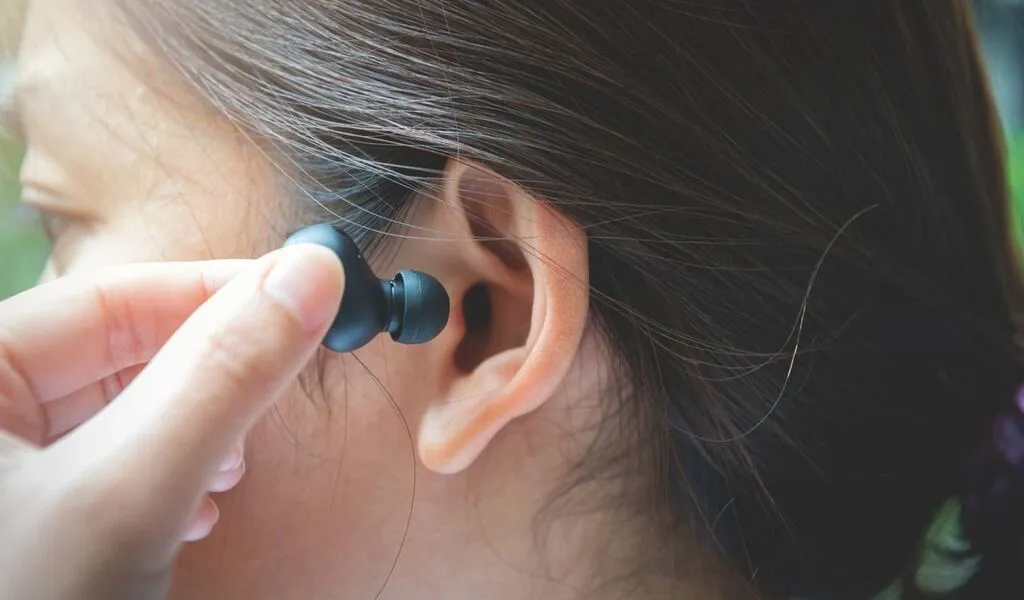Health
More than 1 Billion Young People’s Unsafe Listening Habits May Cause Hearing Loss, Study Shows

(CTN News) – More than 1 billion individuals at risk for hearing loss might be protected by turning down the noise, according to recent research, so it’s not just for irritated parents.
Teenagers and young adults often listen to phones, music, movies, and television programmes too loudly and for too long, finds research published on Tuesday in the journal BMJ Global Health.
According to main research author Lauren Dillard via email, “we projected that 0.67 to 1.35 billion persons aged 12-34 years globally likely participate in risky listening activities,” and are therefore at risk for hearing loss.
Dillard is a postdoctoral fellow at the Medical University of South Carolina and a consultant for the World Health Organization.
According to Dillard, overexposure to sound might wear out the sensory cells and ear structures. They may suffer lasting damage if that continues for too long and develop hearing loss, tinnitus, or both.
According to the report, researchers performed a meta-analysis of scholarly studies on risky listening habits published between 2000 and 2021 across three databases.
According to the research, the dangerous behaviours were monitored based on the usage of headphones and attendance at entertainment places, including concerts, pubs, and clubs.
Over 40 hours per week, the US Centers for Disease Control and Prevention set a recommended noise level limit of around 85 dB. According to the research, listening for only 212 hours per day is comparable to 92 decibels.

Hearing test, exam and treatment. Close up of ear and sound waves, hearing concept
According to the research, listeners often chose levels as high as 105 decibels when plugged into a smartphone that has MP3 music files downloaded, and listening environments typically range from 104 to 112 dB.
Fortunately, Dillard added, governments, organizations, and people may take action to promote safe listening and guard against long-term hearing impairment.
According to De Wet Swanepoel, professor of audiology at the University of Pretoria in South Africa, the study’s research was thorough, and the evidence is strong that hearing loss should be a top public health priority. Swanepoel has no connection to the research.
Swanepoel, the head editor of the International Journal of Audiology, declared: “Music is a gift to be enjoyed for a lifetime.” The advice is to listen to music while being safe.
What to do with your device
Dillard said that ringing ears are a clue that the music was too loud, whether you’re listening at home or at a concert. However, there are methods to stop the harm before you experience its consequences.
According to her, some gadgets include settings that enable users to keep an eye on how much they listen.
Some even notify you when you have been listening too loudly for an extended period of time. Dillard said through email, “Turn down the volume and listen to music for shorter periods of time if your device shows you are listening at harmful levels.”
According to Dillard, experts cannot definitively tell which headphones are the safest for listening, but she did advise selecting ones that minimize background noise since you don’t need to block out the sounds around you. This may help you maintain the volume at lower settings.

The volume dial isn’t always in your hands, however. Dillard said that if you are at a noisy event or venue, you may safeguard your hearing by moving farther away from the speakers and taking pauses away from the noise.
Additionally, she said, using ear protection is always beneficial. Even foam earplugs will work. Swanepoel said in an email that “hearing is the sense that links us to the people we love.”
Keeping strong relationships and our overall health and well-being requires caring for our hearing. Primary prevention in early adulthood is essential to prevent an earlier start and increased age-related hearing loss.
Related CTN News:
Breast Cancer Could Be Caught 2 Years Earlier With Protein Changes In Blood
Long-COVID Clinics Are Struggling With How To Treat Their Patients






























